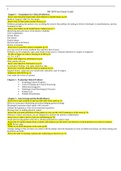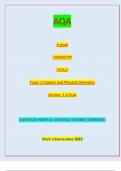Summary
Summary Criminology Unit 1 AC1.1 model answer
- Module
- Changing Awareness of Crime
- Institution
- WJEC
A model answer for AC1.1 of Unit 1 for Criminology Diploma WJEC, an answer that got full marks by a student who achieved 96/100 in the final exam.
[Show more]








